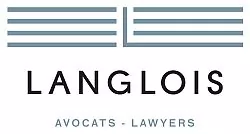Commission scolaire francophone des Territoires du Nord-Ouest v. Northwest Territories (Education, Culture and Employment)
On December 8, 2023, in its decision in Commission scolaire francophone des Territoires du Nord-Ouest v. Northwest Territories (Education, Culture and Employment),1 the Supreme Court of Canada set aside ministerial decisions refusing to admit children of non-rights holder parents2 to French-language schools in the Northwest Territories. At issue was whether the Minister of Education, Culture and Employment (the "Minister"), in exercising her discretionary power regarding the enrolment of children of non‑rights holder parents in French first language education programs, should have considered the purposes and values underlying section 23 of the Canadian Charter of Rights and Freedoms (the "Charter") even in the absence of an infringement of this right. The Supreme Court thus had to determine if the decisions made by the Minister were reasonable.
In light of the requirements laid down in Doré,3 the Supreme Court answered this question in the negative.
Facts
Two public schools offer a French first language education program in the Northwest Territories. In 2016, the Department of Education, Culture and Employment adopted a ministerial directive (the "2016 Directive") governing the admission of children of "eligible non‑rights holder parents"4 to French first language education programs. The 2016 Directive provided for three categories of eligible non‑rights holder parents, namely (1) "Reacquisition", (2) "Non-citizen francophone" and (3) "New immigrant".5 Pursuant to this ministerial directive, an eligible non‑rights holder parent could apply for their child's admission to a French first language education program managed by the Commission scolaire francophone des Territoires du Nord‑Ouest (the "CSFTNO"). In 2018 and 2019, five non‑rights holder parents asked the Minister to admit their children to a French first language education program. The CSFTNO recommended that each of these children be admitted because this would promote the development of the Francophone community of the Northwest Territories6 and help "cur[b] losses to the community"7 in question.
Despite the recommendations and views of the CSFTNO, the Minister denied each of the requests on the ground that the conditions specified in the 2016 Directive had not been met. Furthermore, the Minister maintained that she could not admit the children of non‑rights holder parents who speak French because doing so "would impose too heavy financial burden on the government and create intolerable budgetary unpredictability".8 Finally, the Minister refused to exercise her residual discretion to admit the children.
Analytical framework of the Doré decision
More specifically, the Court had to determine if the test in Doré9 applies not only when a right or freedom is infringed by an administrative decision, but also where one of the values underlying these rights is engaged.
Considering that Doré requires an examination of the underlying purposes of section 23 of the Charter, even though that provision is not directly engaged by the decision, the Court concluded that the Minister's decision was not reasonable and must be set aside.
The Supreme Court stated that in its view "there is a clear link between s. 23 of the Charter and the Minister's decisions, because the decisions were likely to have an impact on a minority language educational environment".10
In light of the requirements laid down in Doré, the Court concluded that the Minister failed to proportionately balance the values and interests of the government. The Minister attached too much importance to her duty to make consistent decisions and to the cost of the contemplated services. Given the remedial nature of section 23, she should have given more weight to the values of preservation and development of the Francophone community of the Northwest Territories.
The values underlying section 23 of the Charter
Under section 23 of the Charter, a defined category of Canadian citizens has "the right to have their children receive instruction in one of the two official languages where it is the minority language".11 This provision "imposes positive obligations on the state".12 Restating some of the dicta in Mahe,13 the Supreme Court emphasized that the very existence of this provision "implies the inadequacy of the present regime".14 Section 23 is therefore meant to alter the status quo, as its application "will of necessity affect the future of minority language communities".15
In its analysis of section 23 of the Charter the Court points out that its purpose is three-fold in nature: preventive, remedial and unifying.16 Not only is it intended "to prevent the erosion of official language communities, but also to redress past injustices and promote the development of those communities".17 The Court also notes that section 23 "differs from other provisions of the Charter because of the collective scope of the individual rights it grants".18
After identifying the purpose of section 23 of the Charter, the Court dealt specifically with the values enshrined in the Charter and the weight the Minister should have given to the values underlying section 23 in making her discretionary decisions on the admission of the five children of the non‑rights holder parents. In this regard the Court stated that "administrative decision makers have an obligation to consider the values relevant to the exercise of their discretion".19 This obligation arises in particular from the importance of these values for Canadian society. The Court considers that these values "are inseparable from Charter rights, which "reflect" them (para. 4). The choice made by the framers to entrench certain rights in the text of the supreme law of Canada means that the purpose of these rights is important for Canadian society as a whole and must be reflected in the decision‑making process of the various branches of government."20
The Court also specified that the values enshrined in the Charter must be considered even if there is no infringement of a guaranteed right or freedom.
What are the values underlying section 23, exactly? In referring first to the three-fold purpose of section 23, the Court specified that "the preservation and development of minority language communities are among the values underlying section 23. Protection of the right to instruction in the minority official language, explicitly entrenched in the Constitution, is a reflection of these values, insofar as education is a means of realizing the societal ideal that they embody. These values require preserving and developing the vitality not only of the minority language, but also of the minority culture."21
Conclusion
The Supreme Court of Canada ultimately concluded that the Minister's decisions were unreasonable. The takeaway from this decision is that the framework established in Doré always applies where the exercise of a discretionary power engages a right, freedom or value of the Charter.
More specifically, when applying the weighting criterion established in Doré in deciding whether or not to admit the children of parents who do not meet the criteria of section 23 of the Charter to minority language schools, governments must consider, in their decisions, the three-fold purpose of this provision, "which is at once preventive, remedial and unifying in nature".22
Footnotes
1. Commission scolaire francophone des Territoires du Nord-Ouest v. Northwest Territories (Education, Culture and Employment), 2023 SCC 31 (the "Judgment").
2. "Non‑rights holders" means persons not meeting the requirements under section 23 of the Canadian Charter of Rights and Freedoms. Consequently, this means persons not entitled to education in the minority language.
3. Doré v. Barreau du Québec, 2012 SCC 12.
4. Judgment at para 16.
5. Ibid at para 17.
6. Ibid at para 30.
7. Ibid at para 6.
8. Judgment at para 34.
9. Doré v. Barreau du Québec, 2012 SCC 12.
10. Judgment at para 78.
11. Ibid at para 1.
12. Ibid at para 2.
13. Mahe v. Alberta, [1990] 1 S.C.R. 342.
14. Judgment at para 2.
15. Ibid at para 2.
16. Judgment at para 79; Conseil scolaire francophone de la Colombie-Britannique v. British Columbia, 2020 SCC 13, [2020] 1 S.C.R. 678 at para 15.
17. Judgment at para 79; Conseil scolaire francophone de la Colombie-Britannique v. British Columbia, 2020 SCC 13, [2020] 1 S.C.R. 678 at para 15.
18. Judgment, supra. note 1 at para 3; Arsenault-Cameron v. Prince Edward Island, 2000 SCC 1 at paras 27 and 29; Doucet-Boudreau v. Nova Scotia (Minister of Education), 2003 SCC 62 at para 23; Solski (Tutor of) v. Quebec (Attorney General), 2005 SCC 14 at para 33; Nguyen v. Quebec (Education, Recreation and Sports), 2009 SCC 47 at para 23; Conseil scolaire francophone de la Colombie-Britannique v. British Columbia, 2023 SCC 13 at para 17.
19. Judgment, supra, note 1 at para 77.
20. Ibid at para 75.
21. Ibid at para 80.
22. Judgment at para 79.
The content of this article is intended to provide a general guide to the subject matter. Specialist advice should be sought about your specific circumstances.




